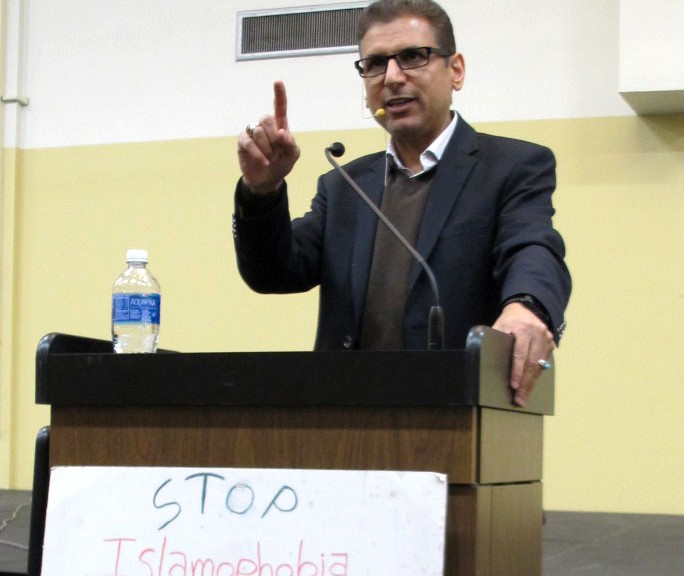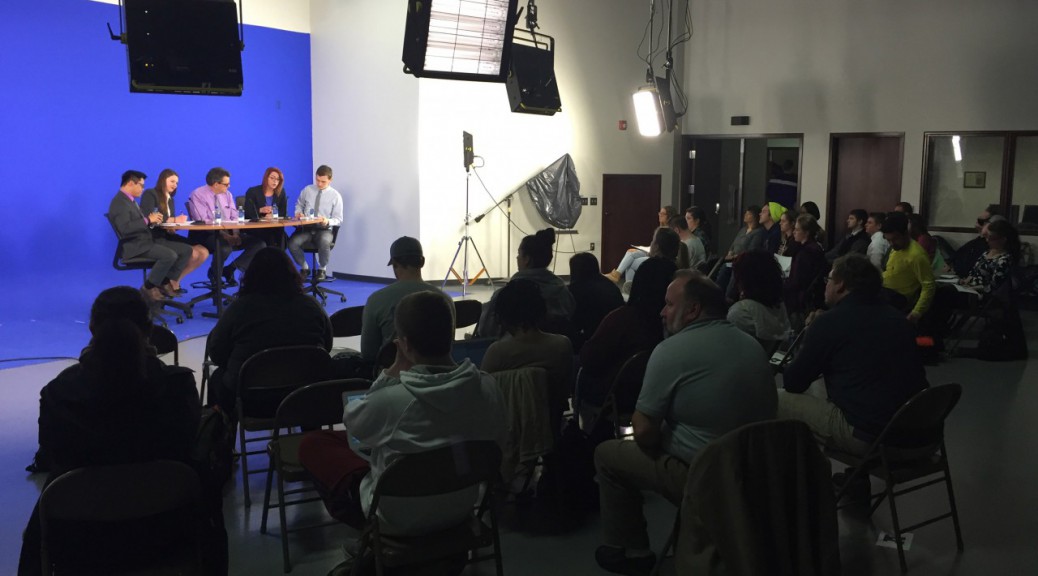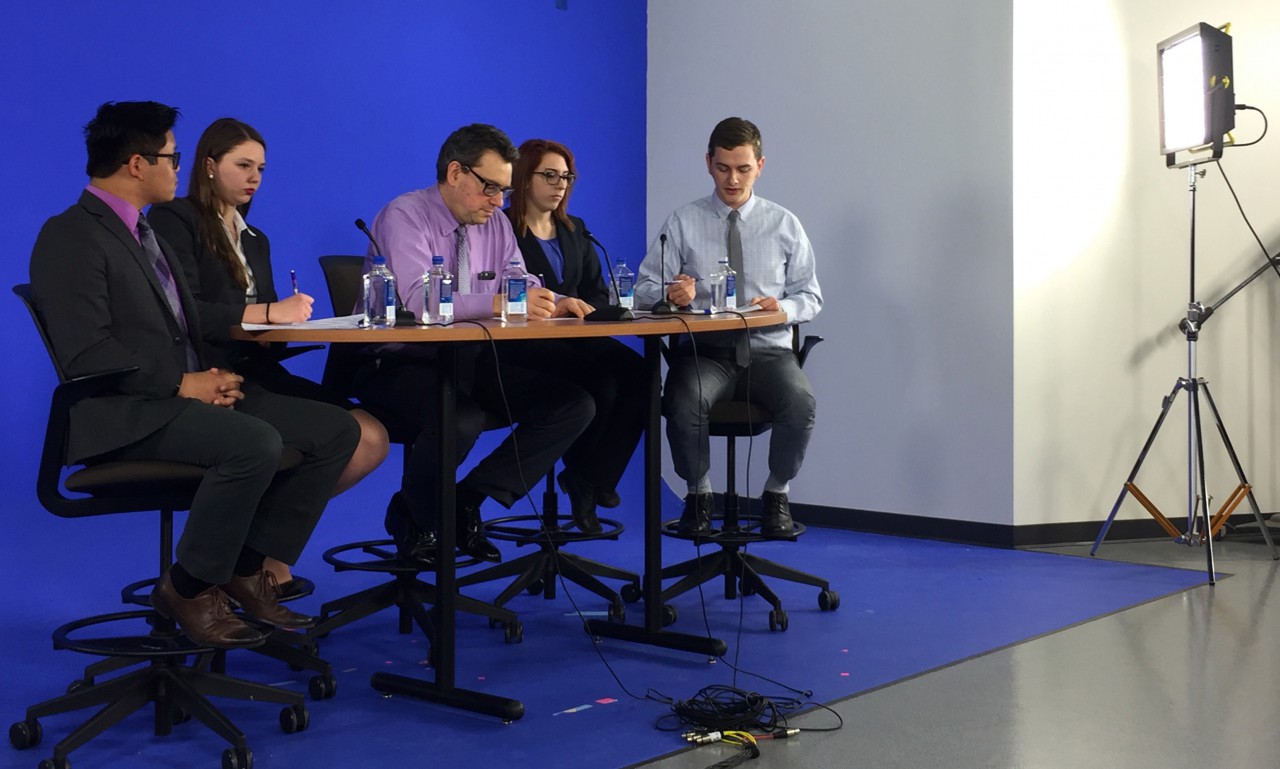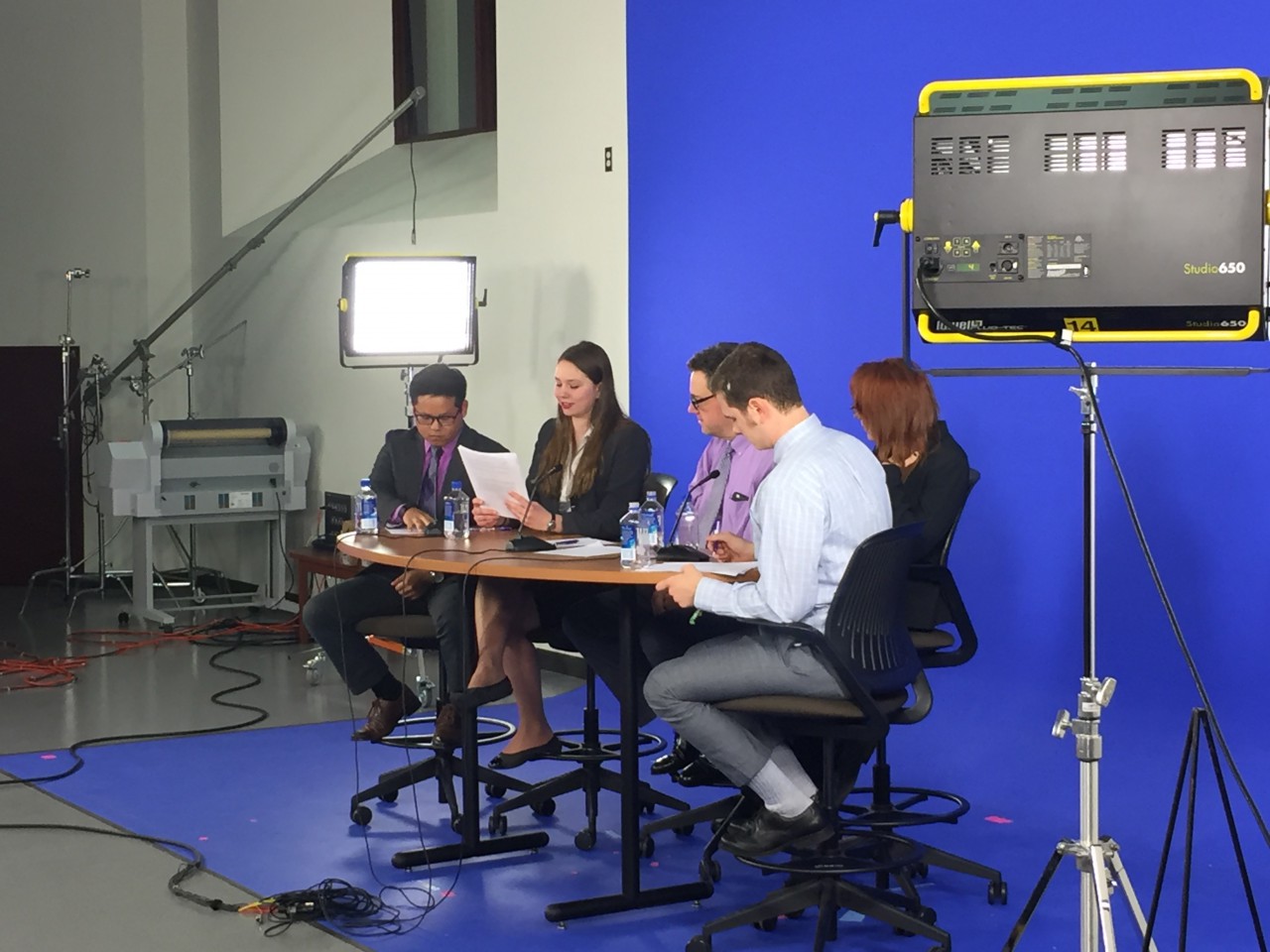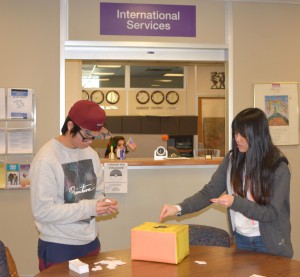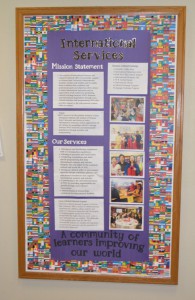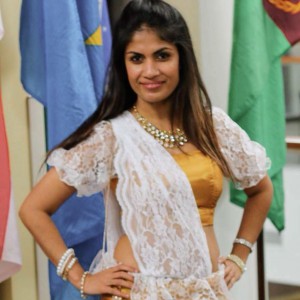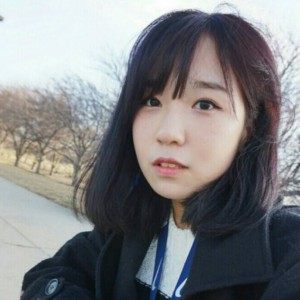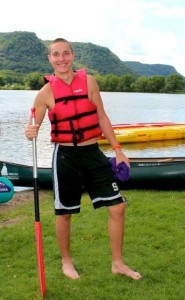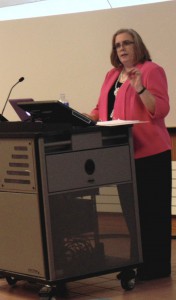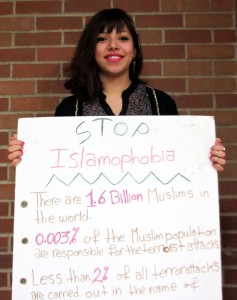
A Winona State University student sparked conversation last week when she posted a photo of herself wearing a sign with facts about Islam on Facebook.
Nada Hussein, a senior majoring in political science at WSU posted the picture on the “Overheard at WSU” Facebook page and received mixed reactions.
Hussein’s sign reads: Stop Islamophobia; There are 1.6 billion Muslims in the world; 0.003% of the Muslim population is responsible for terrorist attacks; Less than 27% of all terrorist attacks are carried out in the name of Islam; You have more chances of being killed by a bee than a Muslim.
The post and the reactions that followed got the attention of the university and prompted the visit of Dr. Sheikh Odeh Muhawesh.
Muhawesh, author and well-known theologian, came to campus to present “Islamophobia in America: How Did We Get Here?”
Muhawesh, an adjunct professor at the University of St. Thomas, discussed the misconceptions surrounding Islam and talked about the dangers of religious segregation during his visit to WSU.
Muhawesh said the greatest misconception about Muslims is that they are the “other.”
“Muslims in America are in every aspect of our society from armed forces to professors, to cab drivers, to doctors, to judges, to students. It’s a misconception to view them as somebody else. Muslims can be white Americans, African Americans, Scandinavian Americans, so that image that people have of Muslims being different is a big misconception,” Muhawesh said.
Hussein’s Facebook post started the conversation about Islamaphobia.
Hussein said some students responded positively by asking her if they could help support her cause.
One student wrote, “I’m a little late to see this post and the semester is almost over, but let me know if there’s anyway I can help out this semester or next.”
Other commenters’ linked articles to news reports from the San Bernardino shootings and the Paris attacks, pointing out the growing numbers of terrorist attacks coming from groups like ISIS.
Another student said, “Although I do not support the type of hate the likes of Trump seem to be espousing, It seems clear to me the world would be a better place without Islam. Further, the idea that ‘Islam is peace’ seems absurd to me. If you want a peaceful religion, you are going to have to look further east than the Middle East.”
Hussein said this type of response is not unusual and this was not the worst of the comments. She said she deals with the negativity by rarely answering people’s negative responses.
“It makes me feel really bad because I’m not trying to defend Islam, I’m trying to make a peace movement and tell people about what they don’t know.” Hussein said.
Muhawesh talked about Facebook in his presentation and said Facebook and most social media allow people to hide behind a wall and therefore it is natural Hussein would receive more hateful comments online than she would in person.
His suggestion to the people who posted negative comments on Hussein’s post is to have a conversation with a Muslim or visit a mosque.
“With interfaith dialogues, we encourage dialogue and face to face meetings. Go to people’s churches, mosques, coinages, temples and see people face-to-face because it’s a totally different feeling.” Muhawesh said.
According to Muhawesh, there are 45 mosques in Minnesota and as far he knows, there is an open door policy, no matter the faith of the visitor.
Muhawesh said the key to eliminating misconceptions of Muslims is to teach religion without evangelizing faith.
“I’m very much in favor of teaching about religions in public schools. Not as a matter of faith, but as a religion. Every segment of the population has a faith of some sort. We need to understand each other and without that education we will always, in each other’s eyes be the other, Muhawesh said.
Hussein came up with the idea to carry the sign with her shortly after the attacks on Paris. She’s vowed to carry it with her on campus every day until the end of the semester.
“Everyone said ‘pray for Paris’ but two days before, the same thing happened in Lebanon and no one said anything about it.” Hussein said.
Offline Hussein said people hardly ever come up to her in person and comment on her sign.
“I get more support from faculty members than I do students,” Hussein said. “Student’s don’t really care they just look at it and keep going. Its more likely for students to walk by and ignore me than say something hateful.”
Now other students are supporting Hussein by carrying signs around campus. According to Hussein, all of the students who asked to join her are all non-Muslim, American students.
“Its hard to be a Muslim around here,” Hussein said. “For me, people may not know by looking at me that I am Muslim because I’m not wearing a headscarf.”
The biggest misconception Americans have about Muslims, Hussein said, is that they are all terrorists or Islam is terrorism.
Hussein said the discrimination against Muslims has gotten worse in the four years she’s been in the United States. She said she thinks its due to the world events such as the Paris attacks back in November.
She said since ISIS has been on the upswing, things have gotten “out of control.”
Along with the recent terrorist attacks, Hussein said the upcoming election also makes her feel worried because of the policies Donald Trump is proposing.
“He wants to give us identification cards and that makes me feel really bad.” Hussein said. “I think I’ll be leaving the country if he’s elected. Why would I stay somewhere and be treated like how Hitler treated people years and years ago?”
According to Muhawesh, hate speech and microagressive moves can lead to violence.
“We should tolerate freedom of speech and criticism. We should tolerate investigations and disagreements. But when that turns into hate and aggressive behavior, that is when we should stop it.” Muhawesh said.
As for stopping Islamophobia on the WSU campus, Muhawesh said students must stop microagressions by standing up to hate speech.
